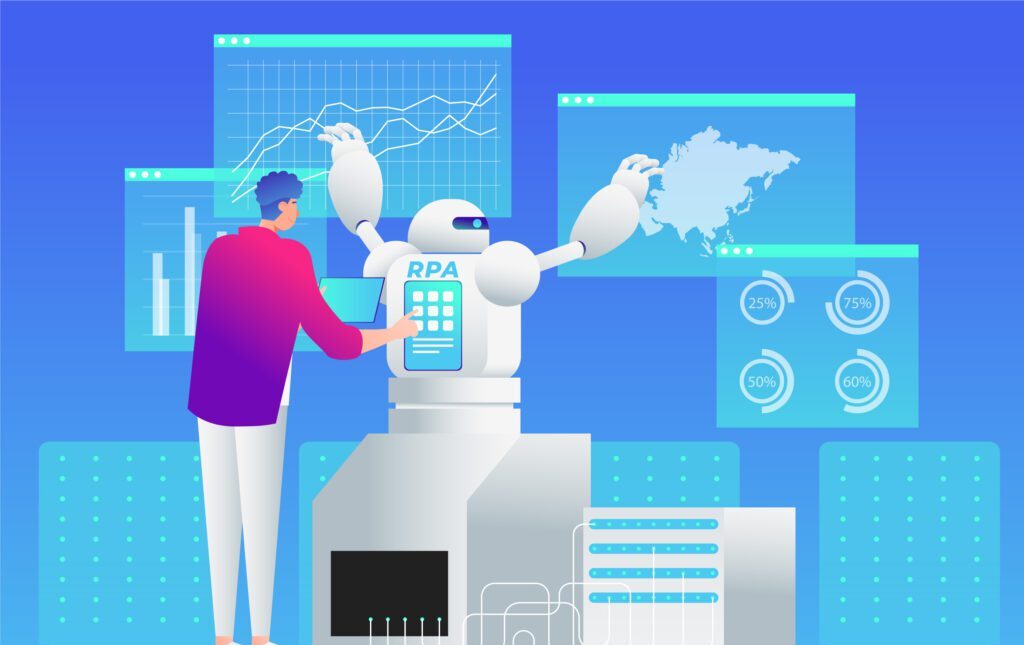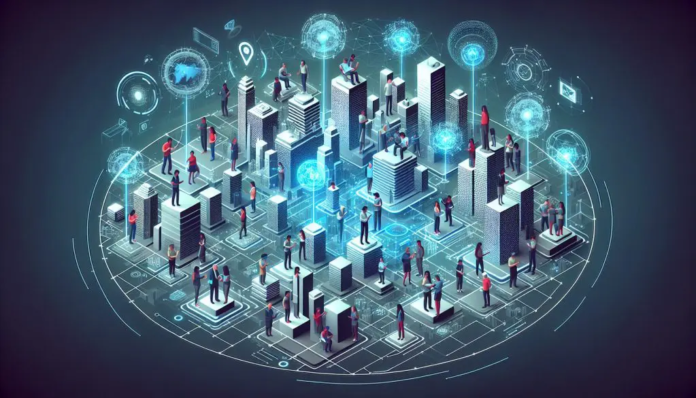AI software development is now reshaping the future software development, which is still expanding and changing the way applications are created and implemented. It is also important to note that AI is ready to provide tools for developers and organizations enhancing their processes and improving their reasoning abilities. Below, five trends that will define the further evolution of the AI software development market in 2025.
1. The Main Shift Towards More Realistic and Implementable AI Solutions
With AI being already established, enterprises are gradually starting to look deeper into practical uses it can offer. As for the last few years, we have witnessed the emergence of various AI tools and frameworks, while 2025 will shift more to the actual scaling of AI software development that will meet practical and specific business requirements. Business organisations will assess whether AI is more than just the latest phenomenon that organisations should jump on but a sound investment.
Some industries like healthcare, financial and manufacturing sectors are looking at how to solve real problems using AI. Rather than trying out various conceptual frameworks, they want to develop replicable frameworks to address particular challenges faced by their customers. This caring approach makes certain that AI brings tangible results and thus, entrenches itself as an invention in AI software development.
2. Increase in the sophistication of the Reasoning and Contextual model in AI.
AI models are already in the generative state and the next generation in 2025 will be highlighted by enhanced reasoning and context awareness. Present day models are mostly dependent on accurate prompts which are not very flexible to use. AI software advancement in the future will design a system capable of interpreting complex queries and discerning intent.
AI systems will work in the way the human brain processes information, which will make their interactions more dynamic. For instance, developers could employ the help of AI to solve intricate software problems or come up with creative ideas based on the analysis of fine details. Such changes in the inference will make AI a tool that is almost essential for creativity and problem-solving processes.
3. AI as a Team Player and Not a Substitute
The current narrative around AI displacing human expertise is changing. The key here is that in the field of AI software creation, there is no talk of substitution but rather integration. AI solutions help specialists in their work by offering information, helping to solve routine problems, and contribute to decision making.
For instance, in software architecture, AI can suggest first designs or prototypes that the developers then adapt for particular applications. Likewise, due to its capability to process large volumes of data, AI makes decisions faster, while oversight by human beings guarantees accuracy and flexibility. This makes it possible for organizations to balance on efficiency and creativity due to the involvement of human and Artificial Intelligence.
4. AI Enhancing the Productivity of the Developer
Some of the codification techniques that have been made easier by generative AI tools include; Prototyping and debugging of software. AI software development tools can save a lot of time to developers by producing code snippets, summarizing documentation, or even pointing out potential errors in just a few minutes.
This does not mean that human expertise is not required at all. AI developers as well are very important in affirming, modifying and fine-tuning the code produced by AI to suit certain software needs. The integrated application of AI tools will shorten project time and enable the teams to concentrate on creative problem solving.

5. AI Ethics and AI Responsibility
The development of AI in software is in the progressive stage, and therefore, new concerns of ethical issues are arising. Employment areas such as the healthcare, law, and finance sectors warrant accurate, secure, and accountable solutions as to why AI has to be done rightly. Transparency and reliability are some of the anticipated standards that developers are supposed to uphold in AI software development projects.
This therefore means that another of the aspects of Responsible AI is the protection of Intellectual Property. Most of the AI-generated outputs derive from the common database and should be checked frequently to prevent compliance violations. Through such an approach, developers guarantee that AI improves credibility and dependability of crucial applications.
The direction of the development of the AI software in the year 2025 shows that it will only act as a tool for increasing efficiency and not as a threat to traditional jobs. By promoting collaboration, improving the reasoning functionality, and solving ethical issues, AI is ready to provide advances in industries. It is a great chance for developers to include the AI tools in their processes and at the same time remain the key players in the software life cycle.
When organizations adopt AI software development, they have to consider the importance of integrating technical features with supervision. This approach makes sure that AI is a reliable ally in the creation of solid, expansive and progressive software solutions of the future.
Source:: devprojournal.com



